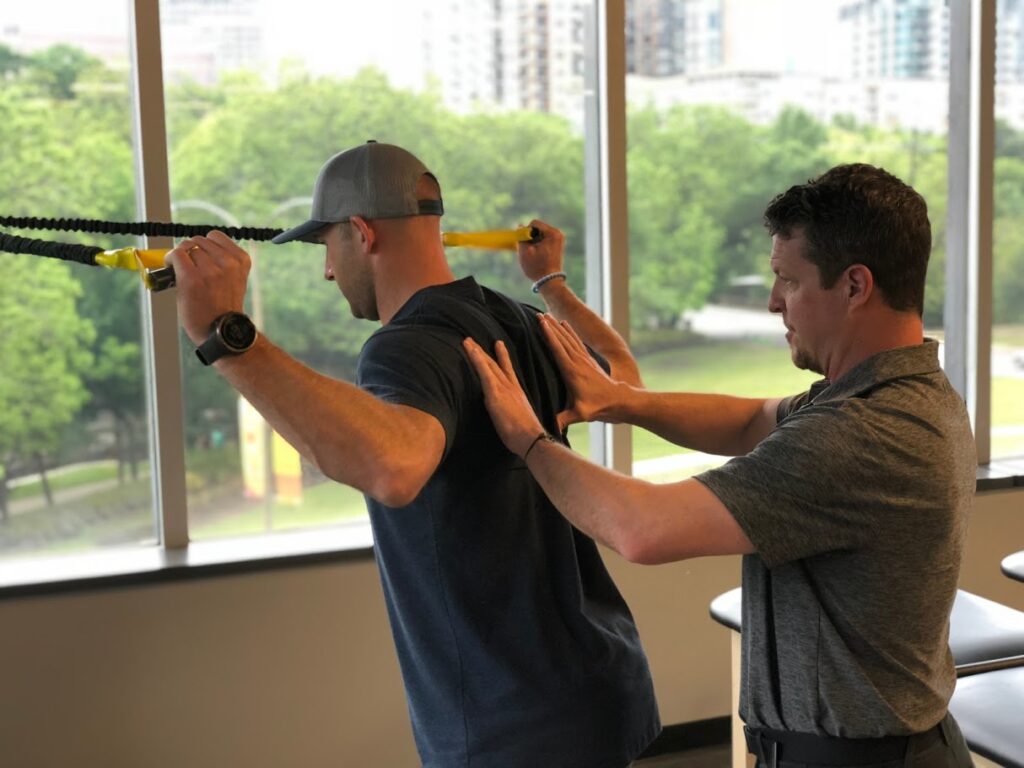CPTN Certified Post-Rehabilitation Conditioning Specialist (CPRCS) Certification Review (2025)
Read this CPTN Certified Post-Rehabilitation Conditioning Specialist (CPRCS) Certification Review to decide if the CPTN CPRCS Certification is worth it and what the best personal training certification is for you.

Are you interested in becoming a Certified Post-Rehabilitation Conditioning Specialist (CPRCS)? In this comprehensive certification review, we will delve into the world of post-rehabilitation conditioning and explore the benefits of obtaining the CPRCS certification. Whether you are a fitness professional looking to expand your knowledge and skillset or an individual seeking post-rehabilitation support, this article aims to provide you with all the information you need to make an informed decision.
Whether you want to learn how to become a personal trainer, or learn how to become a fitness influencer, or learn how to open a gym, or learn how to start a fitness business, or anything in between, use the Exercise.com platform to accomplish your fitness business goals.

You can start an online personal training business, make a fitness app, learn how to make money selling workout plans online, put in-person personal training marketing ideas into action, use personal training income ideas to find personal trainer career options that will put you on track for the highest paying fitness jobs, and many other ways to make money from fitness doing what you love.
With the Exercise.com platform you have the best online fitness coaching software and the best software for fitness influencers all in one! (Not to mention the best gym software and the best personal training software).
Create workout plans.

Manage clients.

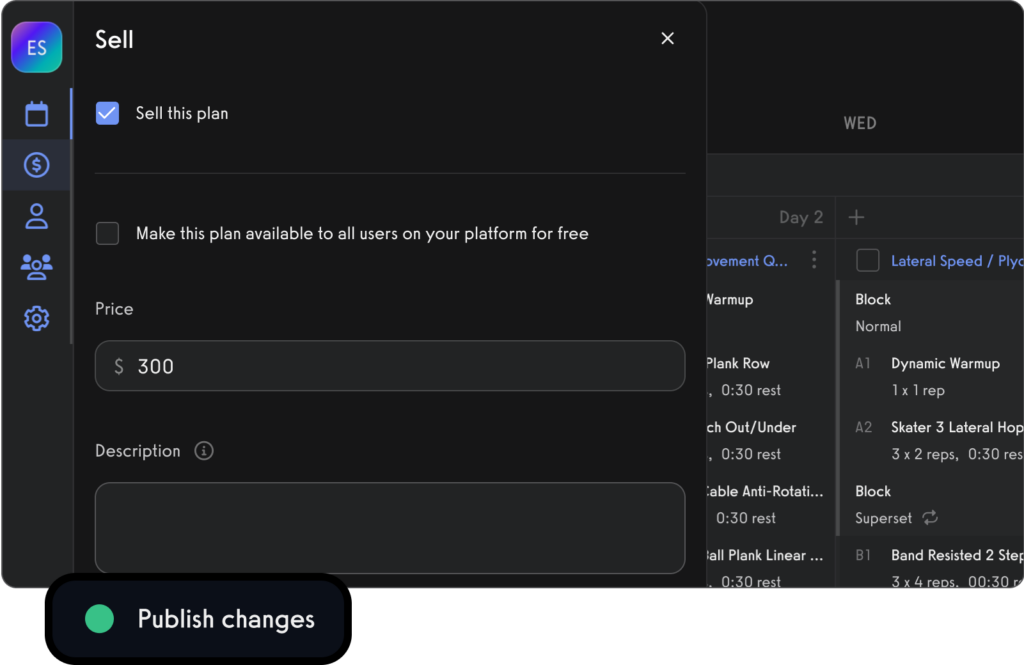
Run online fitness challenges.
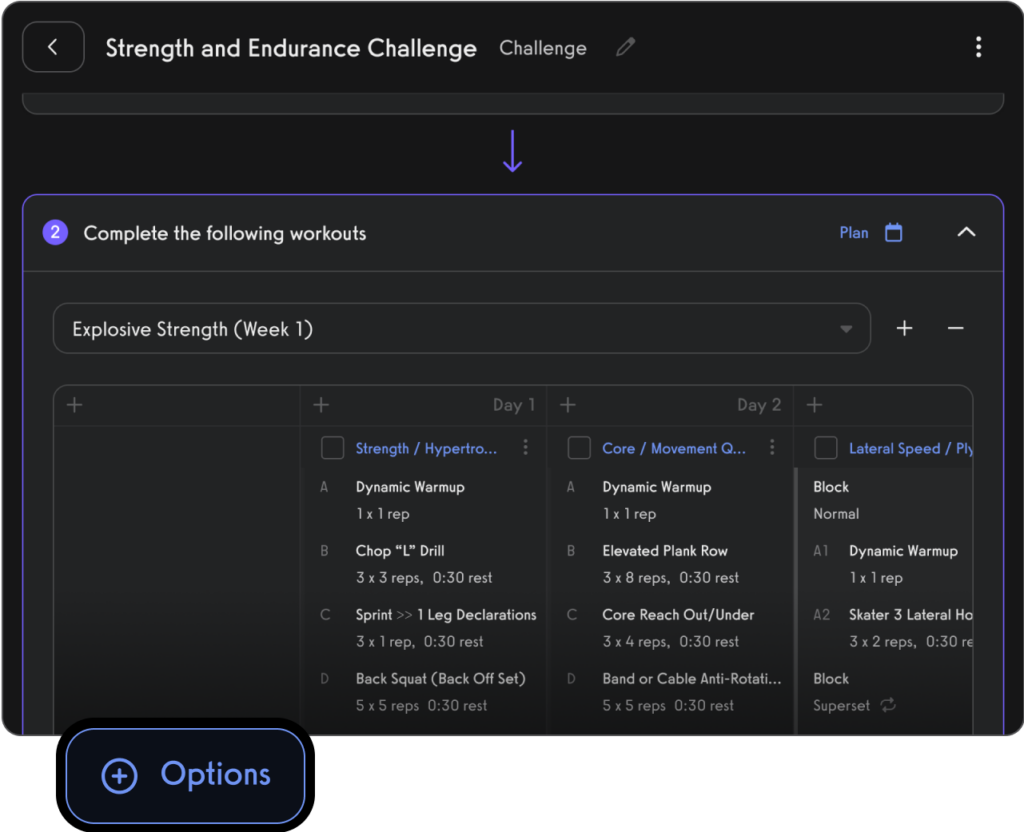
Create and sell fitness memberships, products, and digital offers.

Manage, message, and market to your online personal training clients and leads.
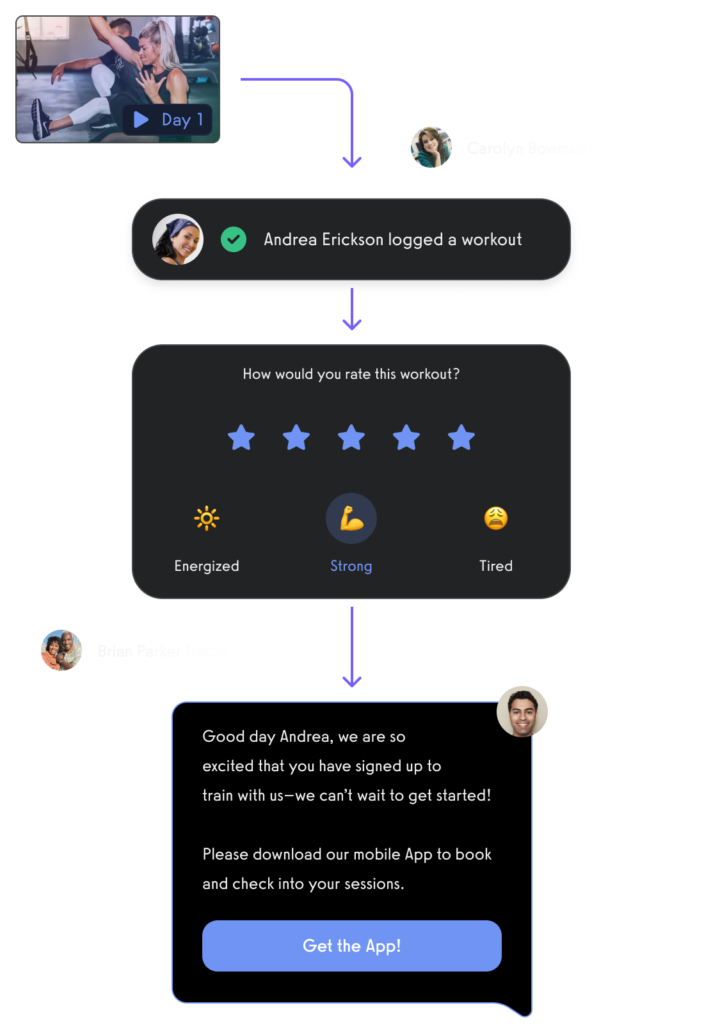
All from your very own custom branded fitness apps.

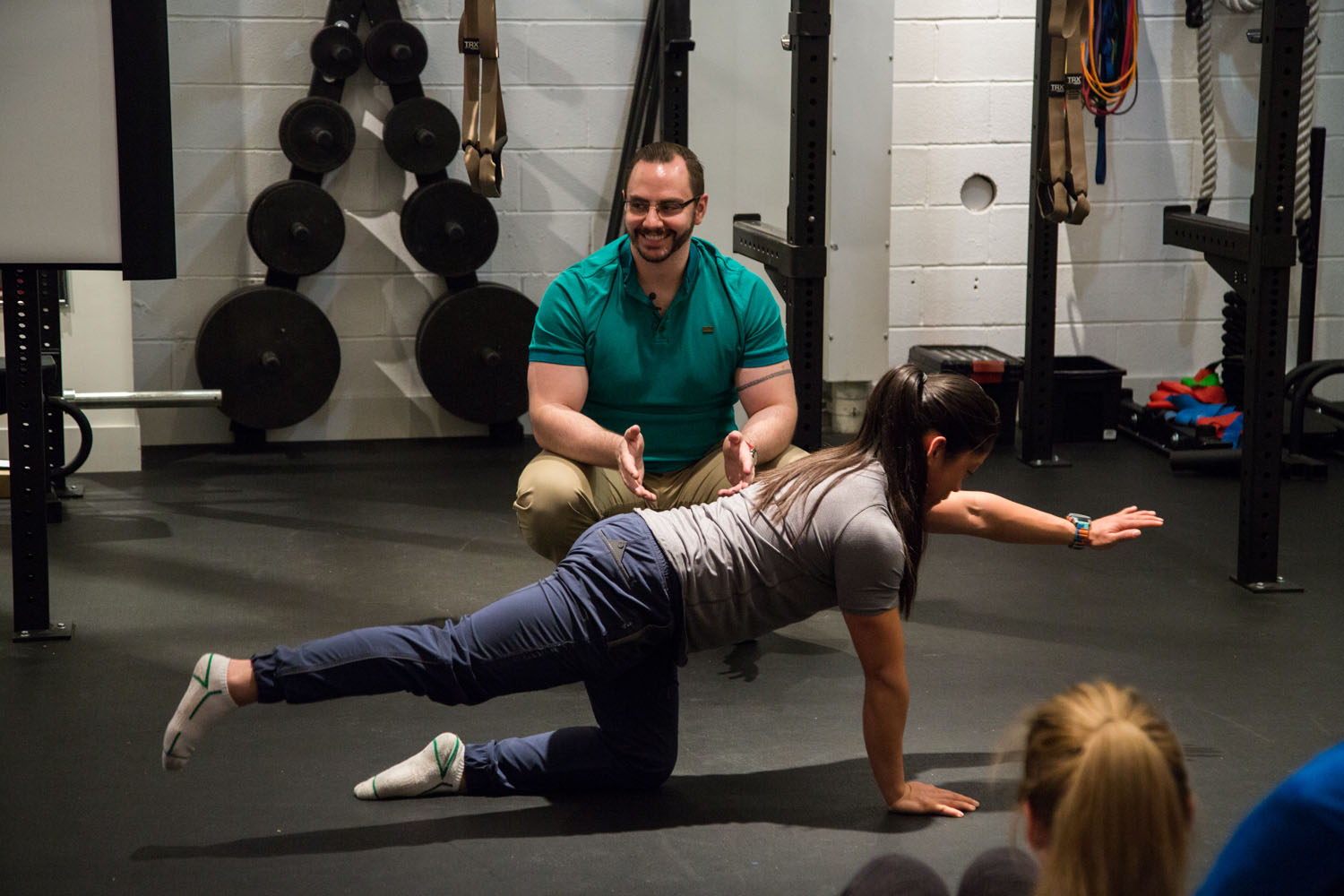
CPTN CPRCS Certification
The CPTN (Certified Professional Trainers Network) Certified Post-Rehabilitation Conditioning Specialist (CPRCS) Certification is aimed at fitness professionals who want to bridge the gap between clinical rehabilitation and full recovery through fitness training. This specialized certification is designed to provide trainers with the knowledge and skills necessary to safely and effectively work with clients who are transitioning from physical rehabilitation to general fitness programs.
Let’s begin by understanding what the CPTN CPRCS Certification is all about. The CPRCS certification offered by the Canadian Personal Training Network (CPTN) is designed for fitness professionals who wish to specialize in post-rehabilitation conditioning. This certification equips trainers with the necessary knowledge and skills to work with individuals who have completed rehabilitation programs and are ready to transition into a fitness routine.
Post-rehabilitation conditioning plays a crucial role in facilitating the transition from rehabilitation to regular physical activity. It focuses on building strength, improving mobility and stability, and preventing future injuries. Trainers with CPRCS certification possess the knowledge to guide clients through this critical phase and help them regain confidence and functionality.
CPTN CPRCS General Information
The Certified Professional Trainers Network (CPTN) offers the Certified Post-Rehabilitation Conditioning Specialist (CPRCS) Certification, aimed at fitness professionals who wish to specialize in designing and implementing conditioning programs for clients transitioning from physical rehabilitation to regular physical activity. This certification is designed to bridge the gap between healthcare and fitness, providing trainers with the knowledge and skills to safely and effectively assist clients in their post-rehabilitation journey.
- Target Audience: Ideal for personal trainers, physiotherapists, kinesiologists, and other health and fitness professionals involved in the care and conditioning of clients post-rehabilitation.
- Curriculum: The CPRCS certification covers a comprehensive range of topics, including anatomy and physiology related to common injuries, principles of rehabilitation, assessment techniques, program design for post-rehabilitation clients, and strategies for effective communication with healthcare providers.
- Study Materials: Candidates receive access to extensive study materials, including textbooks, online resources, and case studies, to facilitate a thorough understanding of post-rehabilitation conditioning.
- Professional Recognition: Earning the CPRCS designation from CPTN enhances a professional’s credentials, demonstrating their expertise in working with post-rehabilitation clients and ensuring a safe transition to regular fitness routines.
Certification Requirements
To be eligible for the CPTN CPRCS Certification, candidates must:
- Be at least 18 years old.
- Hold current First Aid and CPR C/AED certifications.
- Possess a recognized certification in personal training or a related health or fitness field.
CPTN CPRCS Exam Content
The certification exam is designed to assess a candidate’s mastery of post-rehabilitation conditioning concepts and their application in a fitness setting:
Understanding Common Injuries and Conditions
- In-depth knowledge of common musculoskeletal injuries and medical conditions encountered in post-rehabilitation clients, including their physiological implications and impact on physical activity.
Rehabilitation Principles and Techniques
- Familiarity with basic rehabilitation principles and techniques, and how they can be applied within the scope of fitness programming to support client recovery.
Assessment and Program Design
- Proficiency in conducting assessments to determine a client’s readiness for exercise post-rehabilitation, and in designing individualized conditioning programs that align with recovery goals and limitations.
Collaboration with Healthcare Professionals
- Skills in communicating and collaborating with healthcare professionals to ensure a cohesive approach to the client’s post-rehabilitation conditioning, maintaining an understanding of the client’s medical background and ongoing healthcare needs.
Candidates must achieve a passing grade to earn the CPRCS designation, signifying their competency in post-rehabilitation conditioning.
Continuing Education and Recertification
CPTN values ongoing professional development:
- Continuing Education Units (CEUs): CPRCS-certified professionals are required to earn CEUs within their recertification period to maintain their certification, ensuring they stay updated with the latest practices in post-rehabilitation conditioning.
- Professional Development Opportunities: CPTN provides a range of advanced courses and seminars, enabling specialists to deepen their knowledge in specialized areas of post-rehabilitation and fitness.
Certification Cost
The investment in the CPTN CPRCS Certification includes the cost of study materials, access to online content, and the certification exam. While the total cost may vary, the certification offers significant professional value by expanding a fitness professional’s expertise and service offerings in the post-rehabilitation niche.
Overall Rating and Conclusion
The CPTN Certified Post-Rehabilitation Conditioning Specialist Certification is an invaluable asset for fitness professionals looking to specialize in the post-rehabilitation niche, offering:
- Pros: Comprehensive curriculum focused on post-rehabilitation, opportunity to work closely with healthcare professionals, and enhanced professional standing as a post-rehabilitation specialist.
- Cons: Requires prior certification in a related field and a commitment to ongoing education.
Overall, the CPRCS Certification is highly recommended for professionals dedicated to supporting clients in their recovery and transition to regular physical activity, ensuring safe and effective conditioning programs tailored to post-rehabilitation needs.
The CPTN CPRCS Certification is a specialized credential that signifies a trainer’s expertise in post-rehabilitation conditioning. It validates their ability to design safe and effective exercise programs for clients who have completed physical therapy or rehabilitation due to injuries, surgeries, or medical conditions.
Post-rehabilitation conditioning is not just about physical recovery; it also focuses on the psychological and emotional well-being of clients. Trainers with CPRCS certification understand the importance of creating a supportive and encouraging environment that fosters motivation and helps clients overcome any psychological barriers they may face.
Importance of Post-Rehabilitation Conditioning
Post-rehabilitation conditioning plays a crucial role in facilitating the transition from rehabilitation to regular physical activity. It focuses on building strength, improving mobility and stability, and preventing future injuries. Trainers with CPRCS certification possess the knowledge to guide clients through this critical phase and help them regain confidence and functionality.
During the post-rehabilitation phase, clients may experience fear or anxiety about re-injury. Trainers with CPRCS certification are trained to address these concerns and provide reassurance, helping clients build trust in their bodies and gradually increase their activity levels.
Prerequisites for the CPRCS Certification
To be eligible for the CPRCS certification, applicants must meet certain prerequisites. They should hold a valid certification in personal training or a related field and have a current CPR and First Aid certification. Additionally, candidates should have a minimum of 12 months of experience in personal training or a related field.
Having a solid foundation in anatomy, physiology, and exercise science is crucial for trainers seeking CPRCS certification. Understanding how the body functions and adapts to exercise is essential in designing appropriate programs for clients who have completed rehabilitation.
Educational Background and Experience Requirements
The CPRCS certification requires professionals to have a strong educational foundation and practical experience. Candidates must have completed a secondary education and preferably possess a diploma or degree in exercise science or a related field. Additionally, a minimum of 500 hours of practical experience in personal training or a related field is essential.
During the practical experience component, trainers have the opportunity to work with clients who have a wide range of post-rehabilitation needs. This hands-on experience allows them to develop their skills in program design, exercise modification, and client communication.
Application and Registration Process
The application and registration process for the CPRCS certification is simple and straightforward. Applicants are required to submit the necessary documentation, including proof of prerequisites, educational background, and experience. Upon successful application, candidates can register for the certification examination.
Once registered, candidates gain access to a network of professionals who have also pursued CPRCS certification. This network provides a platform for knowledge sharing, mentorship, and ongoing professional development.
Examination Format and Structure
The CPRCS Certification examination evaluates a candidate’s knowledge and understanding of post-rehabilitation conditioning principles and practices. The examination consists of multiple-choice questions that assess various aspects, including client assessment, exercise programming, and safety considerations. The format ensures a comprehensive evaluation of the candidate’s competence in this specialized field.
The examination is designed to test not only theoretical knowledge but also the ability to apply that knowledge in practical scenarios. Trainers with CPRCS certification are equipped to make informed decisions and modifications to exercise programs based on individual client needs and limitations.
Study Materials and Resources
CPTN provides candidates with a range of study materials and resources to prepare for the CPRCS certification examination. These resources include comprehensive textbooks, online learning modules, practice quizzes, and case studies. The combination of theoretical knowledge and practical application enhances the learning experience and ensures candidates have a solid foundation in post-rehabilitation conditioning.
In addition to the provided study materials, trainers with CPRCS certification have access to a wealth of research and evidence-based practices in the field of post-rehabilitation conditioning. This ongoing access to current information allows them to stay up-to-date with the latest advancements and continually improve their practice.
Understanding Post-Rehabilitation Conditioning
Before we dive deeper into the specifics of the CPRCS certification, let’s explore the fundamentals of post-rehabilitation conditioning. This knowledge will serve as a building block for trainers and help them understand the unique needs and challenges of clients transitioning from rehabilitation to fitness.
Post-rehabilitation conditioning is a specialized field that focuses on helping individuals regain strength, mobility, and functionality after an injury or surgery. It involves a comprehensive approach that takes into account the specific needs and goals of each client. By addressing their physical limitations and designing personalized exercise programs, post-rehabilitation trainers play a crucial role in facilitating a smooth transition from rehabilitation to a healthy and active lifestyle.
Assessing Client Needs and Goals
One of the key aspects of post-rehabilitation conditioning is a thorough assessment of clients’ needs and goals. Trainers with CPRCS certification are trained to evaluate individuals’ physical capabilities, identify any lingering limitations or imbalances, and understand their specific goals. This assessment allows trainers to tailor exercise programs that cater to clients’ unique requirements.
During the assessment process, trainers will conduct various tests and measurements to gather information about the client’s current fitness level, range of motion, strength, and stability. They will also take into consideration any medical history, previous injuries, or surgeries that may have an impact on the rehabilitation process. This comprehensive evaluation helps trainers develop a clear understanding of the client’s strengths, weaknesses, and areas that need improvement.
Designing Effective Post-Rehabilitation Programs
Designing effective post-rehabilitation programs requires a deep understanding of anatomy, physiology, and exercise principles. CPRCS-certified trainers possess the knowledge to create personalized programs that focus on rebuilding strength, improving range of motion, enhancing stability, and preventing future injuries. These programs are progressive, safe, and effective, ensuring clients can confidently resume an active lifestyle.
Trainers will carefully select exercises and movements that target specific muscle groups and address the client’s individual needs. They will incorporate a variety of training modalities, such as resistance training, cardiovascular exercises, balance and coordination drills, and flexibility exercises. The programs will be designed in a progressive manner, gradually increasing the intensity and complexity as the client’s physical abilities improve.
Enhanced Career Opportunities
The CPRCS certification opens up a world of career opportunities for fitness professionals. As the demand for specialized trainers in post-rehabilitation conditioning continues to grow, certified professionals have a competitive edge in the industry. They can work in a variety of settings, including rehabilitation centers, sports clinics, fitness facilities, and private training studios.
With the CPRCS certification, trainers can expand their client base and cater to individuals who are looking to transition from rehabilitation to a more active lifestyle. They can also collaborate with healthcare professionals, such as physical therapists and orthopedic surgeons, to provide comprehensive care and support to clients. This certification not only enhances career prospects but also allows trainers to make a positive impact on the lives of their clients by helping them regain their physical capabilities and improve their overall well-being.
Increased Credibility and Professionalism
The CPRCS (Certified Post-Rehabilitation Conditioning Specialist) certification adds an extra layer of credibility and professionalism to a trainer’s profile. It demonstrates their commitment to expanding their knowledge and expertise in post-rehabilitation conditioning, a specialized area of fitness training that focuses on helping clients recover and regain strength after injury or surgery.
Clients seeking post-rehabilitation support are more likely to choose trainers with specialized certifications like CPRCS, knowing they will receive top-quality guidance and support. This certification not only validates a trainer’s skills and knowledge but also instills confidence in clients, assuring them that they are working with a professional who understands their unique needs and can provide effective and safe training.
Expanded Knowledge and Skillset
Obtaining the CPRCS certification allows fitness professionals to expand their knowledge and skillset in the field of post-rehabilitation conditioning. The comprehensive program covers a wide range of topics, including anatomy, biomechanics, exercise prescription, injury prevention, and motivational strategies.
Through this certification, trainers gain a deep understanding of the human body’s mechanics and how it responds to exercise. They learn how to design customized training programs that address specific post-rehabilitation needs, taking into account factors such as the type of injury or surgery, the client’s current fitness level, and any limitations or restrictions they may have.
This extensive education equips trainers with the tools they need to excel in the field of post-rehabilitation conditioning. They develop the expertise to create safe and effective exercise programs that promote healing, restore function, and improve overall well-being for their clients.
Maintaining CPRCS Certification
Once certified, it is important for CPRCS professionals to maintain their certification. This ensures they stay up-to-date with the latest advancements in the field and continue to provide high-quality services to their clients.
Maintaining certification involves meeting continuing education requirements and going through the recertification process. By staying current with industry trends and best practices, CPRCS-certified trainers can continually enhance their knowledge and skills, ensuring they deliver the best possible care to their clients.
Continuing Education Requirements
Continuing education is a vital part of professional development for CPRCS-certified trainers. They are required to accumulate a certain number of continuing education credits within a specified timeframe.
These credits can be earned through approved workshops, conferences, seminars, online courses, or relevant academic pursuits. By participating in these educational opportunities, trainers can deepen their understanding of post-rehabilitation techniques, stay updated on the latest research and advancements, and expand their repertoire of training methods.
Continuing education ensures that trainers stay current with the evolving field of post-rehabilitation conditioning. It allows them to integrate new evidence-based practices into their training programs, ensuring that their clients receive the most effective and up-to-date care.
Recertification Process
The recertification process is designed to evaluate a trainer’s continued competence and commitment to post-rehabilitation conditioning. It typically involves submitting proof of continuing education credits and may include a recertification examination.
Completing the recertification process allows professionals to maintain their CPRCS certification and continue to provide high-quality services to their clients. It serves as a reminder of their dedication to ongoing professional development and their commitment to upholding the highest standards in post-rehabilitation conditioning.
By staying current with the latest research and advancements, CPRCS-certified trainers can ensure that their clients receive the most effective and evidence-based care, helping them achieve their post-rehabilitation goals and improve their overall quality of life.
Clarifying Doubts and Concerns
It is important to address any doubts or concerns that potential CPRCS candidates may have. The CPTN is committed to providing individuals with the necessary information and guidance to make an informed decision about pursuing the CPRCS certification. By addressing concerns and clarifying doubts, the CPTN aims to support candidates throughout their certification journey.
One common concern among aspiring CPRCS professionals is the level of expertise required to work with clients who have specific medical conditions or injuries. The certification curriculum addresses this concern by providing in-depth knowledge on various medical conditions, rehabilitation protocols, and exercise modifications. Additionally, CPRCS-certified trainers have access to a network of professionals and resources that can further support them in their practice.
Another doubt that often arises is the demand for CPRCS-certified trainers in the fitness industry. With an aging population and an increasing emphasis on post-rehabilitation support, the demand for specialized trainers is on the rise. By obtaining the CPRCS certification, fitness professionals can position themselves as experts in this niche market, opening up new career opportunities and expanding their client base.
Final Thoughts on the CPTN CPRCS Certification
The CPTN CPRCS certification offers a unique opportunity for fitness professionals to specialize in post-rehabilitation conditioning. This specialized certification not only expands career prospects but also enables trainers to transform lives and empower individuals to overcome physical limitations. The comprehensive curriculum, examination process, and continuing education requirements ensure CPRCS-certified trainers possess the knowledge and skills to provide exceptional service to their clients.
With each success story and transformation, the impact of the CPRCS certification becomes evident. The ability to help individuals regain their physical function, improve their quality of life, and achieve their post-rehabilitation goals is a rewarding and fulfilling experience for both trainers and clients.
Encouragement to Pursue Post-Rehabilitation Conditioning Specialization
If you are a fitness professional seeking to enhance your skillset or an individual looking for post-rehabilitation support, the CPRCS certification can be a life-changing pursuit. The CPTN CPRCS certification equips trainers with the expertise to guide clients through a critical phase of recovery and helps individuals regain control of their physical well-being. Embrace the opportunity to make a positive impact and embark on a rewarding journey as a Certified Post-Rehabilitation Conditioning Specialist.
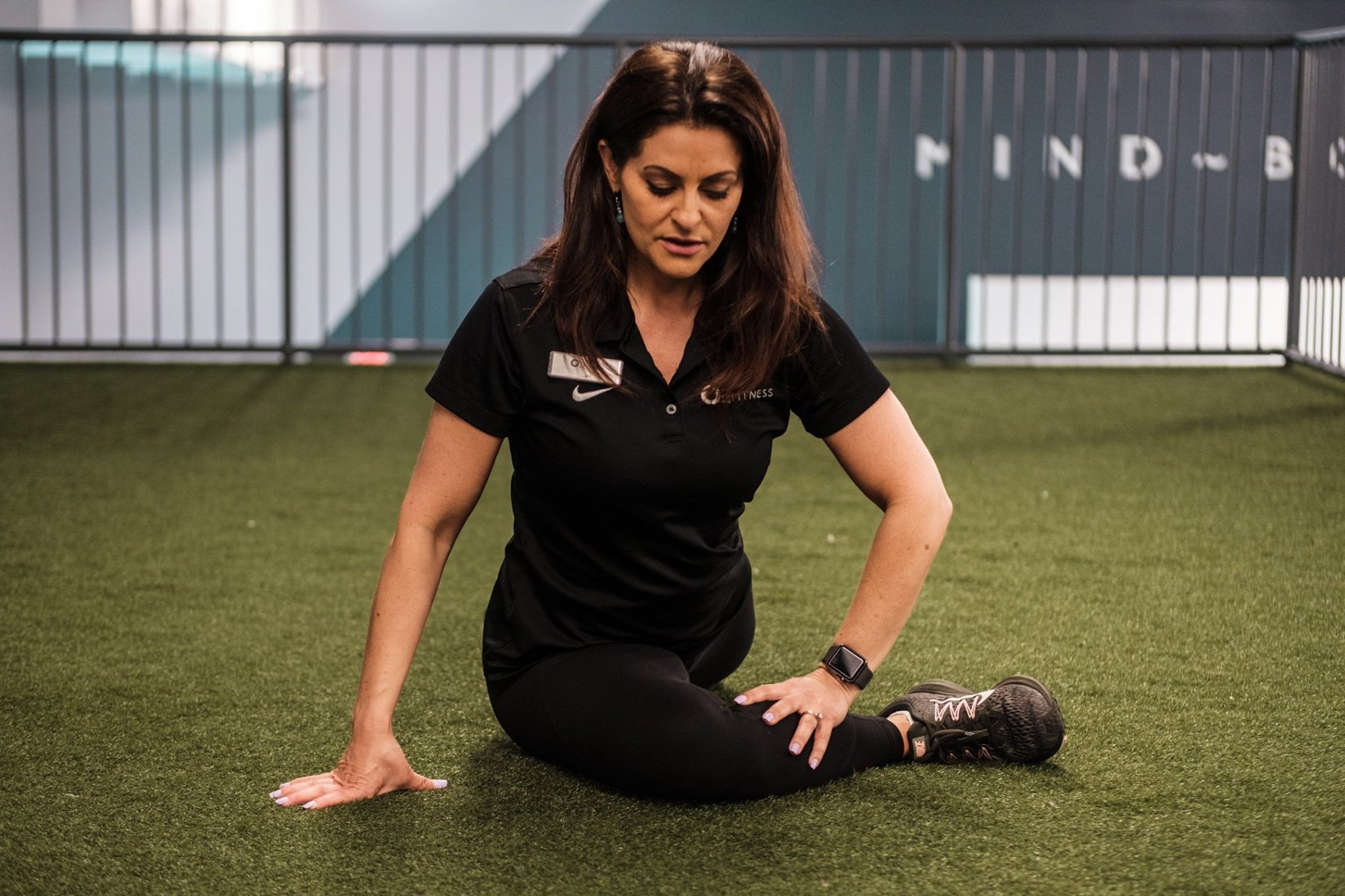
What is the CPTN CPRCS Certification?
The CPTN CPRCS Certification focuses on the principles and practices of post-rehabilitation conditioning. It covers understanding common injuries and medical conditions, principles of healing and tissue repair, risk assessment, and designing and implementing conditioning programs that take into account the specific needs and limitations of individuals recovering from injury or dealing with chronic conditions. The goal is to help clients regain strength, functionality, and confidence in their physical abilities, reducing the risk of re-injury.
Is the CPTN CPRCS Certification worth it?
Yes, the CPTN CPRCS Certification is highly valuable for fitness professionals who wish to specialize in working with post-rehabilitation clients. With an increasing number of individuals seeking to continue their recovery beyond traditional physical therapy, there is a growing demand for qualified trainers who can safely guide them through the next stages of their fitness journey. This certification can enhance your expertise, expand your client base, and allow you to make a significant impact on the lives of those recovering from injury or managing chronic conditions.
Who should get the CPTN CPRCS Certification?
This certification is ideal for:
- Personal trainers who want to develop specialized skills in working with post-rehabilitation clients.
- Fitness professionals working in settings where they are likely to encounter clients with a history of injuries or ongoing health issues.
- Physical therapy assistants and other rehabilitation professionals interested in transitioning into or incorporating fitness training into their practice.
- Health and wellness coaches seeking to broaden their understanding of physical recovery processes and support clients in achieving their fitness goals post-rehabilitation.
How difficult is the CPTN CPRCS Certification exam?
The CPTN CPRCS Certification exam is designed to be comprehensive, assessing candidates’ understanding of post-rehabilitation fitness principles, injury-specific conditioning strategies, and safety protocols. The exam is challenging but achievable with thorough preparation, including a solid grasp of anatomy, physiology, and rehabilitation concepts, as well as practical experience in designing and implementing conditioning programs for individuals with special considerations.
How credible is CPTN?
CPTN is recognized as a credible organization within the fitness and health industry, known for its commitment to high-quality, evidence-based education and certification programs. The CPRCS Certification is backed by CPTN’s reputation for excellence, making it a respected credential for professionals specializing in post-rehabilitation conditioning.
How many times can you fail the CPTN CPRCS Certification exam?
CPTN typically allows candidates multiple attempts to pass the CPRCS Certification exam, subject to specific retake policies that include details on fees and the required waiting period between attempts. It’s important to review these policies directly with CPTN for the most current and accurate information.
What can you do with a CPTN CPRCS Certification?
With the CPTN CPRCS Certification, you can:
- Work with clients who are transitioning from physical rehabilitation to general fitness, designing personalized conditioning programs that address their specific recovery needs.
- Collaborate with healthcare professionals, such as physical therapists and physicians, to provide a continuum of care that supports clients’ full recovery and return to optimal functionality.
- Offer specialized training services in fitness centers, wellness clinics, or private practice, catering to a niche market of post-rehabilitation clients.
- Contribute to the development of post-rehabilitation conditioning protocols and best practices within the fitness industry.
How much does the CPTN CPRCS Certification cost?
The cost of the CPTN CPRCS Certification can vary based on factors such as workshop attendance, study materials, and examination fees. Prospective candidates should consult CPTN’s official website or contact the organization directly for the most accurate and up-to-date pricing and enrollment information.
What are the best certifications for post-rehabilitation fitness professionals?
In addition to the CPTN CPRCS Certification, other reputable PT certifications for post-rehabilitation fitness professionals include:
- The ACSM Certified Exercise Physiologist (EP-C), which focuses on exercise prescription for individuals with chronic diseases and health conditions.
- The NSCA’s Tactical Strength and Conditioning Facilitator (TSAC-F), suitable for those working with military, law enforcement, and emergency personnel recovering from injury.
- The NASM Corrective Exercise Specialist (CES) Certification, offering training in identifying and correcting common movement dysfunctions.
Choosing the right certification depends on your career goals, the specific needs of your clientele, and your interests within the field of post-rehabilitation fitness, ensuring you’re well-prepared to provide comprehensive and effective support to individuals on their recovery journey.
